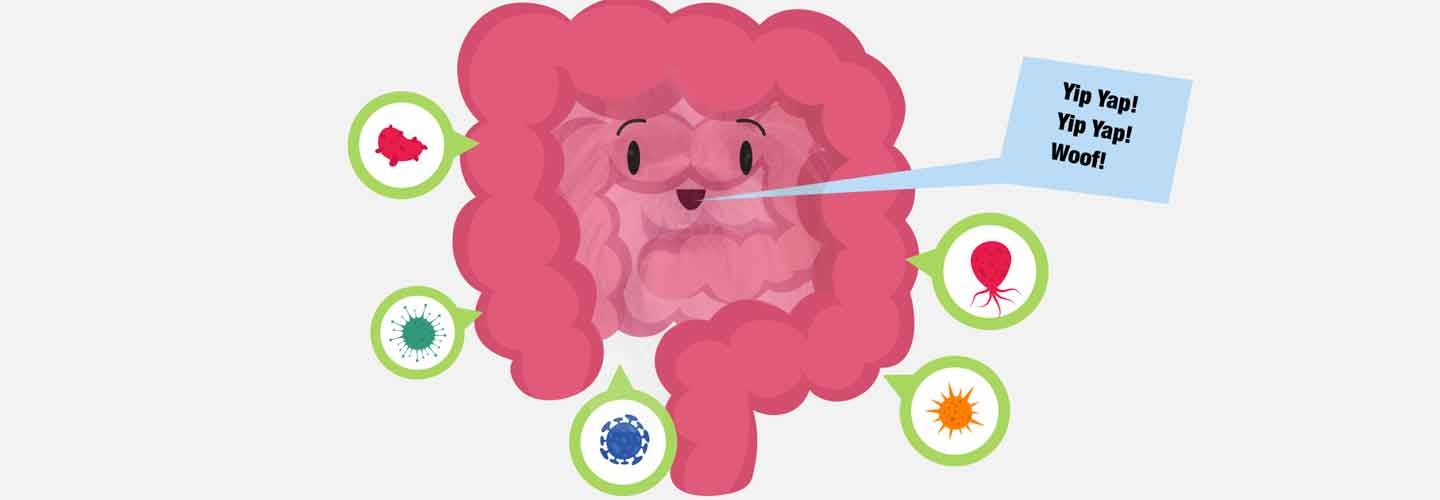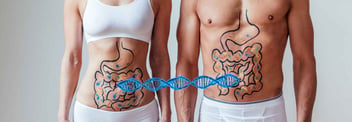Your Mighty Moody Microbiome – Part 8 The Care and Feeding of Your Microbial “Pet” with Mental Health Prebiotics
- Home
- Blog

Reader, I have a colleague who dearly loves animals. She’s the sort of person who always stops to say hello to the stray cats she sees on the street, and who lets out an audible “Aww!” whenever she sees a puppy waiting patiently at a coffee shop or restaurant as their owner finishes their bite to eat. I’ve seen her melt so many times in front of a cute animal that I finally asked her—if she loves animals and animals so clearly love her back, why doesn’t she get a pet herself? She laughed and responded with a simple answer: “I would love to have a dog or kitty keeping me company at home, but they’re just too much of a commitment right now.” I had to agree. After all—some parents get an animal for their children to teach them responsibility. Some couples even get an animal to gauge their readiness to have kids together! And some single, divorced, or widowed folks long for the companionship of a pet, but don’t want to sacrifice their freedom. It takes time to raise a well-behaved pet. And if you don’t have the time to give, or are unwilling to make the effort, a pet can wreak absolute havoc in your household. And no matter what your pet’s breed or species, the foundation of responsible pet care is to love them, which includes feeding them a healthy, nutritious diet. But, you might be saying, Dr. Kehr is not a veterinarian… so why does all this matter? For the last two months we’ve taken a deep dive into the workings of our microbiome—a collection of trillions of microscopic organisms living within our gut. The genetic makeup of these organisms outnumber the genes in our bodies by a factor of 1000:1, and unlike our personal genome, which is fixed for our lifespan, their genome can begin to vary in as little as 24 hours, based upon the foods we eat, the drugs we take, and other environmental factors. They are within us, and yet they are not us. And reader? Just like a pet, our microbiomes can bring us great pleasure and joy, or wreak havoc on our emotions.
The Care and Feeding of Our “Pet Microbiome” to Help with Anxiety, Depression and Bipolar Disorder
Just like a regular pet, we should all treat caring for our microbiomes as a big responsibility—after all, those trillions of bacteria play a role in everything from our mood to our metabolism; producing neurotransmitters, vitamins, hormones, foods for our cells to produce energy, building and maintaining a healthy immune system, and so much more! And just like a regular pet, paying attention to what we feed our microbiome can make it sing our praises, or hate our guts (pun intended)—and create profound consequences for our mental and physical health. As it happens, our microbiomes have a “favorite food”—prebiotics—and the more we understand about them, the happier “pet” we’ll have living in our gut!
Why Feed Your Gut?
If a kitty is happy and healthy, you can expect lots of hugs, nighttime cuddles, purrs, and happy meows when you get home. If a puppy is happy and healthy, you can expect a playful companion who gets you out the door on walks, loves to play games, and administers affectionate licks to show you love. If your microbiome is happy and healthy, you may expect increased cognitive functioning, mood regulation, decreased inflammation, decreased chances of developing mental illness or neurodegenerative disorders, a healthy metabolism, and a happy immune system ready to fight off all comers. Talk about an incredible pet—we call it our Mighty Microbiome for a good reason, after all!
As we’ve discussed at length in this series, our microbiome does so much for us—but just like a little puppy or kitty, if we don’t create the conditions for it to thrive, it can make our lives miserable. Now, we must remember: our microbiome is an entirely distinct, living entity within us—and like all living things, it needs to be properly fed to flourish. If we don’t feed it the right way, it will become less diverse, and less able to help us fight off pathogens and keep us healthy. So, what should we feed our trillions of little gut bugs? Prebiotics provides a straightforward answer.
Prebiotics Keep your Mighty Microbiome Happy and Healthy
When discussing the microbiome, probiotics and prebiotics are two terms that come up with relative frequency—so I want to clarify at the outset what the differences are between the two. Quite simply, probiotics are living microorganisms, some of which may naturally occur in the gut already. Prebiotics, on the other hand, are defined as a “selectively fermented ingredient that results in specific changes in the composition and/or activity of the gastrointestinal microbiota, thus conferring benefits upon host health.” Far more simply put: prebiotics are the foods that probiotics and your microbiota both love to eat! They feed your “pet” exactly the diet it needs to provide you unconditional (cellular) love.
Here’s how it works: non-digestible carbohydrates in our food make their way into our digestive tract, where our gut microbiota eagerly seize upon them and “eat” them—the fancy word for a gut bug eating its carbs is called “fermentation”. When our gut microbiota is finished with their yummy prebiotic snack, new substances called short-chain fatty acids are produced from their degradation. These include lactic acid, butyric acid, and propionic acid. Short-chain fatty acids are so small that they are able to diffuse into our blood circulation and affect organs throughout our body, from our brain to our gut and back again! They are also epigenetic modulators of our cellular DNA throughout our body!
These little wonder molecules that appear after our gut is finished digesting the prebiotics we feed it have been found to significantly impact a number of our physical and mental systems. They’ve been found to mitigate the risk of colorectal cancer by, among other things, improving the integrity of our intestinal tract (playing its role in preventing a leaky gut!). They’ve been found to improve our immunity by increasing numbers of good gut bacteria while minimizing numbers of harmful bacteria that make us sick. They’ve been found to have “regulatory effects” on our synaptic functions, our neurotransmitters, and on our BDNF. Studies have shown that prebiotics and their degraded biproducts, short-chain fatty acids, may reduce stress, influence mood, improve memory and concentration, and reduce inflammation. Talk about a happy pet!
Certain genetic variants may predispose to a greater need for prebiotics, given their negative effects on the microbiome. For example, in Genomind’s Mindful DNA Professional, the FUT2 gene affects the surface receptors in your gut that allow for the attachment and growth of intestinal microbes and provides an important food source for healthy gut bacteria. If you have a resilient FUT2 gene, your surface receptors are robust, and you have more potential for a diverse—and thus healthy—microbiome. If you have a risk gene, however, you likely have a lower diversity and possible dysregulation of gut microbiota. Those with the risk variant have a 7-14% increased risk of inflammatory GI conditions like Celiac disease or Crohn’s disease.
Prebiotics may well be a revolutionary new avenue to help doctors treat patients with mood disorders, stress, anxiety, inflammation and more. And at this point, you may be wondering how the heck you can get your hands on these microbial goodies. Turns out, you don’t have to look very far. Prebiotics—those non-digestible carbs your gut bacteria love—are naturally found in a whole host of foods you may already be eating, including tomatoes, soybeans, wheat, onions, asparagus, bananas, beans, honey, fermented vegetables, sauerkraut, walnuts, pistachio nuts, tiger nuts, garlic, milk, oats, artichokes, sugar beets, leeks, chicory, barley, peas, beans, seaweed, and microalgae.
In some ways, thinking of your gut as an incredible pet might make you more inclined to eat a healthier diet. If you realized you had an organism living inside of you that had the power to keep your mood steady and so much more, wouldn’t you want to make sure it had everything it needed to thrive? Our Mighty Microbiome is an incredible organism—and prebiotics help your gut bugs help you. Feed them right—they’ll thank you for it!
Related Information
- Learn about Genetic Testing
- Learn about Potomac Psychiatry
- Meet Our Doctors
- Contact Potomac Psychiatry
.png?width=144&height=144&name=Untitled%20design%20(34).png)



